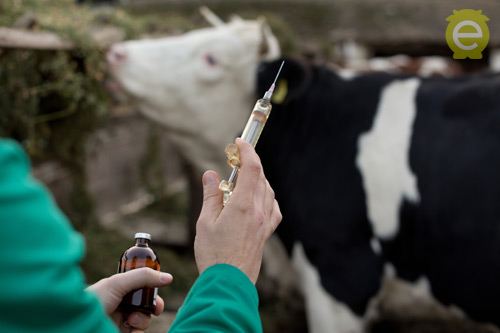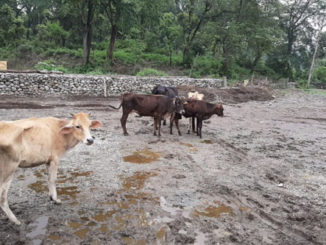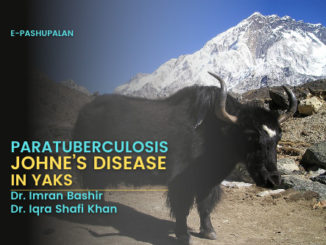Animal diseases cause huge losses to livestock farmers. Prevention of many diseases is possible by protecting the animals by prophylactic and strategic vaccination. “Prevention is better than Cure” is age old proverb which proves its worth by routine vaccinating. Vaccination is done at specific age and at definite time interval against specific disease(s) using vaccines to give optimal protection to the animals. Preferably deworming should be ensured at least 2-3 week in advance before vaccinating. Vaccination schedule may vary depending on the prevalence of disease.

Vaccination Schedule for Cattle and Buffalo
| S. No. | Name of Disease | Age at first dose | Booster dose | Subsequent dose |
| 1 | Foot and Mouth Disease (FMD) | 4 months and above | 1 month after first dose | Six monthly |
| 2 | Haemorrhagic Septicaemia (HS) | 6 months and above | – | Annually in endemic areas. |
| 3 | Black Quarter (BQ) | 6 months and above | – | Annually in endemic areas. |
| 4 | Brucellosis | 4-8 months of age (Only female calves) |
– | Once in a lifetime |
| 5 | Theileriosis | 3 months of age and above | – | Once in a lifetime. Only required for crossbred and exotic cattle. |
| 6 | Anthrax | 4 months and above | – | Annually in endemic areas. |
| 7 | Infectious Bovine Rhinotracheitis (IBR) | 3 months and above | 1 month after first dose | Six monthly (vaccine presently not produced in India) |
| 8 |
Rabies (Post bite therapy only) |
Immediately after suspected bite. | 4th day | 7,14,28 and 90 (optional) days after first dose |
What to Do
- Animals should be in good health at the time of vaccination.
- It is beneficial to deworm the animals 2-3 weeks before vaccination for better immune response.
- Ensure vaccine is not expired and cold chain is not broken till the time of administration to the animal.
- Use only sterilized disposable syringes and needle; administer either SC or IM as per Manufacturers instructions.
- The manufacturers’ instruction on the route and dosage should be strictly followed.
- A minimum vaccination coverage of 80% of population is required for proper control of the disease.
- Vaccination should be carried out at least a month prior to the likely occurrence of the disease.
- Vaccination of animals in advanced pregnancy may be avoided even though in most cases nothing untoward may happen.
- Avoid animals from stress until 2 weeks post vaccination.
- Avoid antibiotics and impressiveness medicines until 2 weeks post vaccination.
Common reasons for vaccination failure
- Lack of maintenance of cold chain from the time of manufacture till vaccination.
- Poor immune response in weak and improperly fed animals.
- Lack of herd immunity due to only a few animals being vaccinated.
- Poor quality of vaccine – Quality will deteriorate if repeatedly thawed and cooled.
- Low efficiency or ineffective vaccine may occur in case of strain variation (eg. FMD).






Be the first to comment